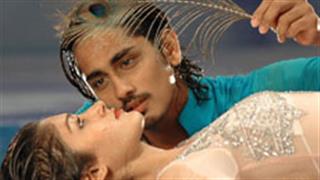They make up the background crowd in movies, whether in a dance, a fight or a street scene. Some have been around for nearly 50 years, but they are still junior artists in the industry. The fact is the "extras" - as they
are called - find themselves relegated to the shadows all their lives, with never enough money and certainly never fame.
There are more than 10, 000 members registered with the Junior Artists Association in Mumbai, the home of the world's biggest film industry. Many junior artists say TV treats them worse than the film industry.
"I am 69 and I've been here since 1963. I did films like 'Geet Gaya Patharo Ne' and I am still working. We used to have a huge Anglo-Indian group and would work two to five shifts at just Rs.20 to Rs.30 per shift, " said
a junior artist who doesn't want to reveal her identity.
"Nowadays in television we get Rs.750 and in films we earn Rs.900 to or Rs.1, 000 per shoot. In most studios, we don't get rooms. We sit in the field and wait for our call. Only big production houses like Karan Johar
and Yash Chopra give us air-conditioned rooms.
"TV production houses treat us like dirt. Television has almost stopped using junior artists. They use people who are well off and just want to show their faces on TV. Where should we go at this age? Who will give us a
job? We sit the whole day on a set just for Rs.750, " she said.
Junior artists are classified into three categories - Class A, B and C - on the basis of their acting capability and they are paid accordingly.
"Acting happened to me by chance. I wanted to be a fashion designer. It's difficult as you have to have that strong contact or reference to get a big role, " junior artist Vanessa Rewrie, currently seen as Durga in the
serial "Krishnaben Khakrawala", told.
"Remunerations depend on your calibre. If you are an experienced artist, you get around Rs.5, 000 per day, else the maximum is Rs.2, 500, " she said, adding, "I tried films but haven't cracked them so far."
Abhishek Jha, 23, from Faridabad landed here after completing Class 12. But he has survived mainly because of his multi-tasking ability.
"I am not only into acting, I work as an assistant director and in production to learn and survive here. First, I assisted in a serial called 'Shubh Kadam' and then director Naitik Raval in a Gujarati film. For me it wasn't
that difficult because I got full support from my family, " said Jha, who also runs a portfolio agency and does real estate brokerage.
Sometimes they are not even paid.
"The first payment I didn't get. It was for Balaji. They were making some horror serial and the coordinator took his commission in advance saying he will adjust it with the pay cheque. That time it was Rs.1, 500 per day
and I paid 30 percent of it from my pocket. The serial never went on air and I didn't get my payment, " alleges Delhi boy Dheeraj Miglani, 24, who got selected in 2005 to work in the TV show "He-Man".
Many say it is not possible to fulfil big Bollywood dreams without a godfather.
"If you have a godfather, then it's different. But in most cases, you cash in on your talent. I was doing theatre in Kolkata and people said 'your Hindi is good, you should try Mumbai'. I joined Nalini Kala Manch. I got four
Bhojpuri films. I had a BPO job and it helped me survive, " said Reema Debnath who has done bit roles in serials like "C.I.D.", "Aahat", "Jyoti", "Chandramukhi" and a few more.
In the TV industry, the payment comes 60 days after a show goes on air. Ad filmmakers pay within a week or two, while filmmakers do it in three parts - first, on signing the film, second, during the shoot and last, while
dubbing.
It is mandatory for these artists to register with any of the bodies that come under Cine and Television Artistes Association (CINTAA).
"The union has huge money. I joined the union in 1964. Associations have no facilities for junior artists at all regarding this retirement funds, " said the junior artist who wanted to be anonymous.
And life is still hard.
"I live in a rented home and pay Rs.5, 000 because my children don't look after me. I have not done any film for many days. I will get only Rs.50, 000 after I retire, " she signed off.
Bollywood's 'extras': Story of dreams unfulfilled
Monday, June 13, 2011 12:43 IST



















